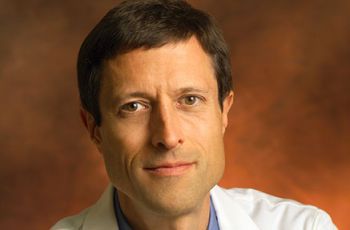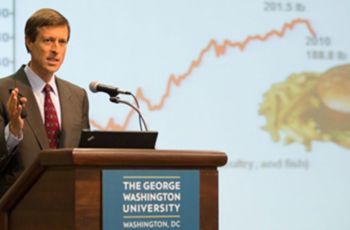Exercise and Nutrition Sciences
Neal Barnard, M.D., adjunct associate professor of medicine, was interviewed by The Boston Globe about why he does not eat meat. He believes that meat and fish are bad for both the heart and brain.
Neal Barnard, M.D., adjunct associate professor of medicine, was featured in Fergus Falls Daily Journal as a local speaker, calling on his generation to tackle the issue of food as previous generations had taken on smoking.
Neal Barnard, M.D., adjunct professor of medicine, has been interviewed by several media outlets on his new book, "Power Foods for the Brain," which describes how to lower a patient's risk of Alzheimer's disease by changing his/her diet.
Neal Barnard, M.D., adjunct associate professor of medicine, was featured in Medscape Medical News and The Daily Meal for releasing new dietary guidelines for the prevention of Alzheimer's disease.
In an op-ed published in the Boston Herald, Neal Barnard, M.D., adjunct associate professor of medicine, outlines ways one can prevent Alzheimer's disease through diet and exercise.
Neal Barnard, M.D., adjunct associate professor of medicine, was profiled by the Washington Times-Reporter, focusing on his upcoming speaking engagement about his latest book, “Power Foods for the Brain,” at Illinois Central College.
The George Washington University’s Urban Food Task Force hosted its first-ever “Research and Education in Food and Nutrition” expo March 28.
Before the White House, a trip to the grocery store required First Lady Michelle Obama to be armed with a “finely honed plan of attack” to get in and out in 30 minutes.
Neal Barnard, M.D., adjunct associate professor of medicine, has authored, "Power Foods for the Brain," a book that reveals how diet can protect the brain from memory loss, stroke, and Alzheimer's disease.
Neal Barnard, M.D., adjunct professor of medicine, was interviewed by Washingtonian's Well + Being on ways to keep your brain healthy and memory sharp.



